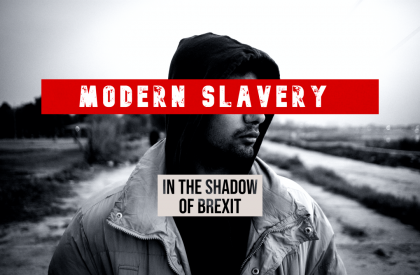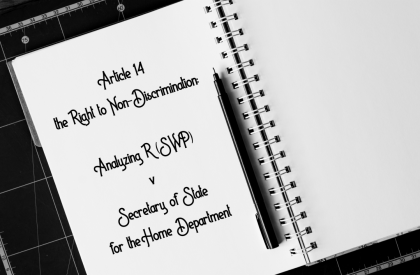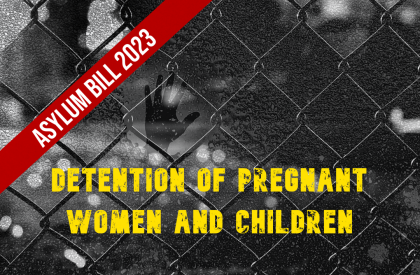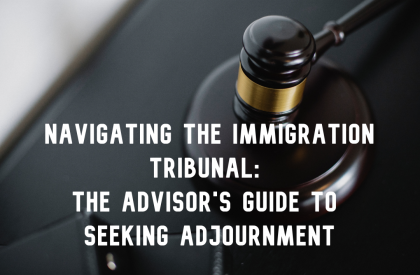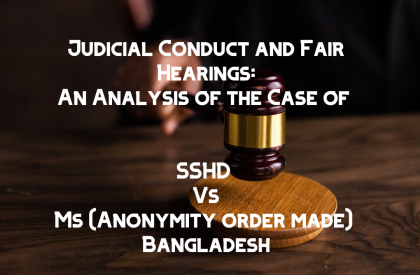A Comprehensive Guide to Application
Bringing your fiancée to the UK is an exciting milestone, but navigating the application process for a fiancée visa can be complex.
To ensure a smooth experience with minimal stress and cost, it’s essential to work with expert immigration solicitors who can guide you every step of the way. Read on to learn more about the fiancée visa UK, its requirements, and how to apply.

Understanding the Fiancée Visa UK
The Fiancée Visa UK allows a non-UK citizen to enter the UK as the partner of someone who is settled in the country. Known also as a “Prospective Marriage Visa,” this type of visa differs from other partner visas, as it does not require you and your partner to have lived together previously. The applicant must intend to marry within six months of entering the UK. If you are a UK citizen planning to return and live in the UK, you may apply for this visa to bring your fiancée to join you.
How Do I Apply for a Fiancée Visa UK?
The fiancée visa allows your fiancée to join you in the UK for six months. During this period, marriage must take place, and a Spouse Visa application should be submitted thereafter. To qualify for the fiancée visa UK, you must meet the following requirements:
- Both you and your fiancée must be at least 18 years old.
- You must have met your fiancée in person.
- Both parties must intend to live together permanently.
- The fiancée visa does not permit employment.
- Evidence must be provided of any previous relationships, if applicable, showing they have been legally ended.
- You must have adequate accommodation to live in once you arrive in the UK.
Financial Requirements for a Fiancée Visa UK
To apply for a fiancée visa, you must demonstrate the financial capability to support your fiancée without relying on public funds. The requirements include:
- Your fiancée must earn a minimum of ££29,000 annually or have sufficient savings to meet the requirement. For additional dependents, the required financial threshold will increase.
English Language Requirements
Both you and your fiancée must be able to speak and understand English to function in daily life in the UK. The applicant needs to provide evidence by:
- Passing an approved English language test at an appropriate level.
- Being a national of a majority English-speaking country.
- Holding a degree taught in English, which is equivalent to a UK bachelor’s degree or higher.
Proving a Genuine Relationship for a Fiancée Visa
You must provide evidence that your relationship is genuine and that you intend to marry within six months of your arrival in the UK. This will be evaluated through your application and any supporting documents. Interviews with UKVI may also be part of the process.
What If I Don’t Marry My Fiancée or Enter into a Civil Partnership
If you decide not to marry, you must leave the UK before your visa expires. If your stay exceeds six months, you may wish to apply for an extension before returning home. Upon future re-entry, you will need to apply for a valid visa.
Documents you need to provide include evidence of your relationship, your fiancée’s passport, and proof of financial independence. If your fiancée visa application is refused, you may be able to appeal.
How to Switch from a Fiancée Visa to a Spouse Visa
Once you’ve married during your fiancée visa stay, you can apply for a Spouse Visa. The process typically requires providing documents such as your marriage certificate and proof of your financial situation. If you marry in the UK, your spouse may need to apply for an EEA Family Permit before travelling.
Marriage and Civil Partnership in the UK
When applying for a Spouse Visa, you must show that you are legally married or in a civil partnership. You will need to submit the relevant certificates, identification, and evidence that both you and your partner can support yourselves financially in the UK.
Appealing a Fiancée Visa Refusal
If your fiancée visa application is rejected, you have the right to request an Administrative Review. If the decision is still unfavourable, a Judicial Review may be sought. While applying for a Judicial Review is not always successful, it is an option if you believe the Home Office made a mistake.
Processing Time for the Fiancée Visa UK
The fiancée visa is typically granted for a period of six months, during which you must marry. After marriage, you can apply for a Spouse Visa, which will be valid for 30 months. After five years, you can apply for Indefinite Leave to Remain (ILR). If your marriage includes children under 18, they can also join you as dependents.
What Happens If Your Application Gets Rejected?
A fiancée visa rejection can be disheartening, but common reasons for refusals include:
- Failure to meet English language requirements
- Submitting incorrect or unverified documents
- Inadequate proof of your relationship
- Applying for the wrong type of visa
If your visa is refused, the rejection letter will outline whether you can appeal. In most cases, you can reapply or appeal the decision within 28 days of receiving the refusal notice.
How Soon Do I Need to Marry After Entering on a Fiancée Visa UK?
Once married, you can apply for a Spouse Visa. This visa typically lasts for two years and allows your spouse to live and work in the UK. After two years, you can apply for an extension, leading to indefinite leave to remain after five years, provided you meet financial and other requirements.
Changing from a Fiancée Visa to a Spouse Visa
You must marry within six months of entering the UK on a fiancée visa. If you do not marry within this period, your visa will be cancelled, and you may have to leave the UK. If you have concerns or questions about the process, it’s advisable to seek professional advice to ensure compliance with visa conditions.
If you need expert assistance with your Fiancée Visa UK application, don’t hesitate to contact our immigration solicitors. We’re here to help you navigate the process efficiently and affordably
News Feeds.
Decision Are A Professional Attorney & Lawyers Services Provider Institutions. Suitable For Law Firm, Injury Law, Traffic Ticket Attorney, Legacy And More.
- January 6, 2025
Brexit’s Impact on Modern Slavery in the UK’s Hospitality Industry: An Alarming Trend
- January 6, 2025
Article 14 and the Right to Non-Discrimination: Analyzing R (SWP) v Secretary of State for the Home Department
- January 6, 2025
Detention of Pregnant Women and Children: Concerns Raised Over Proposed UK Asylum Legislation
- January 6, 2025
Navigating the Immigration Tribunal: The Advisor’s Guide to Seeking Adjournment
- January 6, 2025
The Intersection of Mental Health and Immigration Bail: Applying for Immigration Bail on Grounds of Mental Health
- January 6, 2025

